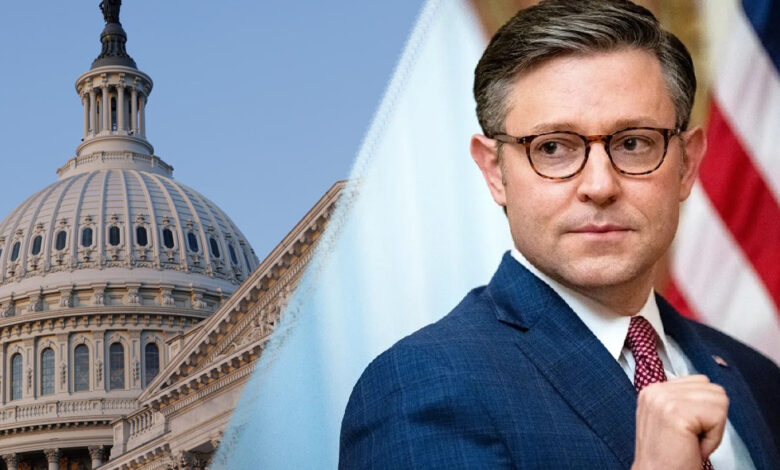
On January 3, 2025, Mike Johnson was narrowly re-elected as the Speaker of the U.S. House of Representatives, securing his position for another term in what was described as a tense and pivotal vote. This re-election came with a clear message from his own party: a warning to navigate the tightrope of GOP expectations more deftly.
Johnson, who initially faced opposition from three House Republicans during the vote for the speakership, managed to sway two of them to his side—Ralph Norman of South Carolina and Keith Self of Texas—securing the necessary votes to win. However, the third dissenter, Thomas Massie of Kentucky, stood firm, casting his vote for House Republican Whip Tom Emmer instead. This scenario underlines the precariousness of Johnson’s leadership with the GOP’s razor-thin majority in the House.
The warning from House Republicans was palpable in the discourse surrounding Johnson’s leadership. Many within the party expressed frustration over his handling of key issues, including government spending and legislative priorities. Some Republicans, like Victoria Spartz, criticized Johnson for what they perceived as a lack of a concrete plan to address fiscal responsibility and government size, highlighting a desire for more decisive leadership.
Despite this, Johnson’s re-election was bolstered by a significant endorsement from President-elect Donald Trump, who has been vocal about his support for Johnson. Trump’s influence was evident as he reportedly engaged directly with the dissenting members, helping to sway the votes needed for Johnson’s confirmation. This endorsement, however, also serves as a reminder that Johnson’s speakership is tied closely to advancing Trump’s political agenda, including policies on tax cuts, immigration, and government spending.
The discord within the party was further evidenced by posts on X, where users discussed the implications of Johnson’s re-election. Some expressed skepticism about his ability to unite the party, while others saw his leadership as a step towards implementing an “America First” approach. Critics argue that Johnson’s compromises with Democrats on previous legislation, like government funding, signal a potential deviation from conservative principles, creating a divide within the GOP.
Johnson’s immediate challenges include managing the narrow majority, navigating the party’s ideological spectrum, and fulfilling commitments to both his hardliner and more moderate colleagues. The GOP’s internal dynamics suggest that any further missteps could lead to another leadership challenge or even broader party unrest.
As the 119th Congress begins, all eyes are on Johnson to see how he will respond to this warning from his party. His ability to lead effectively, maintain party cohesion, and satisfy both the conservative base and those seeking broader bipartisan cooperation will be critical in the coming months.




